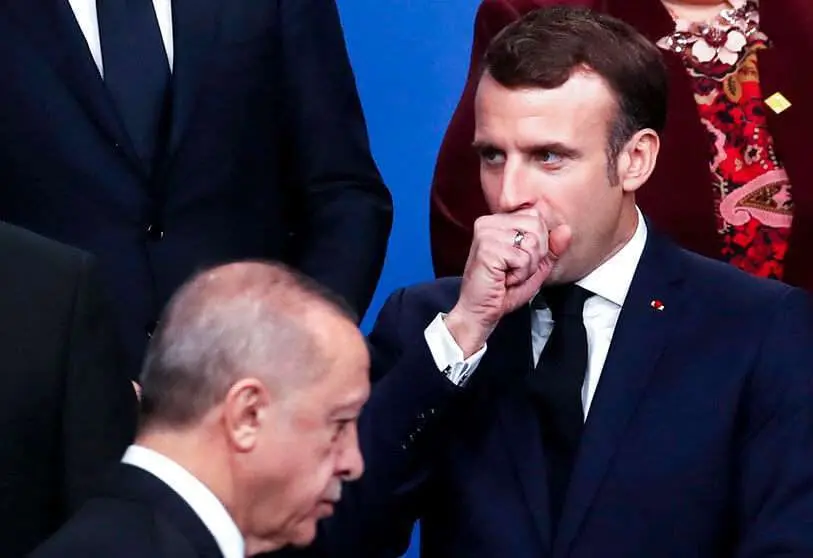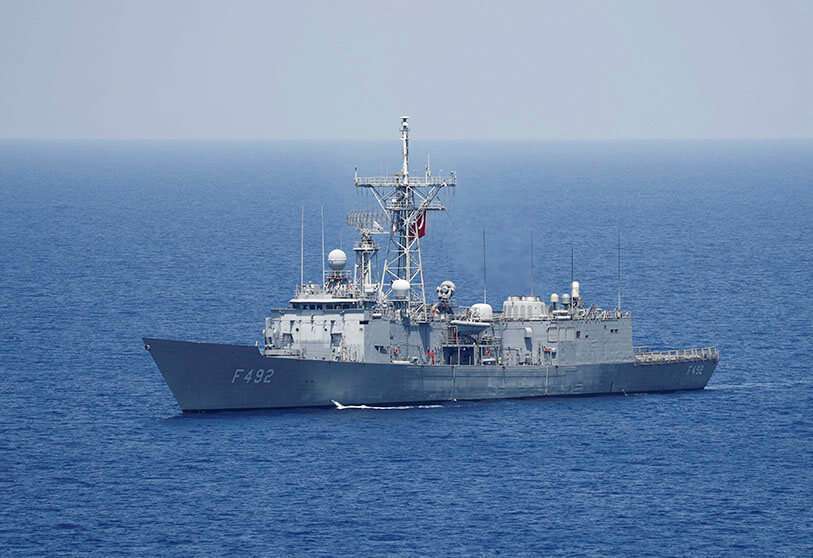France backs a Euro-Arab coalition to confront Turkey in the Mediterranean

A Euro-Arab coalition is French President Emmanuel Macron's bid to counter Turkey's growing influence in the Mediterranean Sea, which has gained significant prominence in recent times following the military victory over the Libyan capital, Tripoli, in early June, of its allied faction, the Government of National Accord (GNA) against the National Liberation Army (LNA), the latter supported by Paris and by the Arab sphere represented by Saudi Arabia and the United Arab Emirates (UAE).
As explained by The Arab Weekly, "faced with Ankara’s growing aggressive posture in the pursuit of its goal of assuming control of Libya’s resources and taking advantage of its strategic location, France has moved at a feverish pace to thwart Turkish ambitions," with gestures such as immediate support for the peace initiative put forward by Egyptian President Abdel Fattah al-Sisi and backed by Russia, Saudi Arabia and the UAE. The latter's Minister of State for Foreign Affairs, Anwar Gargash, welcomed the French decision to "joining the voice of the Arab majority,” and congratulated Macron for becoming "the first European leader to explicitly refer to this reality and this danger by urging the European Union and NATO to stand up to Turkey in both Libya and Syria, thereby placing France as a strategically leading country for Europe regarding Turkey and security in the Mediterranean", a message published in an opinion piece in the French daily Le Point. Tunisia, through its leader Kais Saied, is also approaching this group of countries, despite Ankara's attempts to drag it into its orbit of influence through the Muslim Brotherhood organization.

It should be remembered at this point that tensions between Turkey and France have escalated against the backdrop of the war in Libya. While Ankara has shown its explicit support for the GNA, led by Prime Minister Fayez Sarraj, Paris has opted for the LNA, commanded by Marshal Khalifa Haftar. In the last few weeks, there have been successive crossings of accusations between the two administrations: "Turkey's actions in Libya are unacceptable and intolerable" and France 'wants to divide' war-torn Libya in attempt to go back to 'old colonial times', are the two messages that have been the backbone of the crisis that has erupted within the North Atlantic Treaty Organisation (NATO), since both are members of it.
The verbal tension entered a new phase last week with an incident that occurred in the waters of the Mediterranean Sea: Paris accused Ankara of "harassing" one of its ships while carrying out an Alliance mission, even going so far as to think that a missile attack was "imminent"; Turkey denied it. In particular, the French frigate Le Courbet tried to find out the intended destination of the Tanzanian-flagged ship Cirkin, which was suspected of carrying an arms shipment, but was prevented from doing so by three Turkish Navy vessels escorting it. The Turkish Army ships then turned on their radar lights three times in the space of a few seconds, a manoeuvre that usually precedes the firing of missiles.

In response, Édouard Philippe's government urged NATO to adopt a common front in the face of the Eurasian nation's hostile attitude, although it did not succeed. The organisation led by Jens Stoltenberg opted for a neutral stance, in an attempt not to further strain relations within the Alliance, but has achieved the opposite: French Ambassador to NATO Muriel Domenach announced on Wednesday that his country is temporarily withdrawing from the Sea Guardian mission in the Mediterranean. Analysts agree: "it is a measure that indicates there was not enough support from the alliance following an aggressive encounter with Turkish ships last month," writes Rym Momtaz in Politico.
In fact, Paris has conditioned its return to the operation on four demands, according to the publication: "That NATO allies reaffirm their commitment to the arms embargo; outlaw the use of NATO call signs when ships are on national operations; improve coordination between Sea Guardian and the EU Operation IRINI (which is also meant to enforce the Libya embargo); and the setting up of a mechanism to defuse conflict and avoid incidents among allies."

France has criticised the Alliance for its lack of coordination and its ambiguous lines of action on the missions that control security in the Mare Nostrum, which include safeguarding the arms embargo on Libya from 2011. Turkey, despite being a NATO ally, has repeatedly violated this premise, sending weapons and mercenaries to the civil war in the North African country. This is why Paris justifies its decision: "It’s a very clear political move that shines a light on the fundamental ambiguity of an anti-smuggling operation that includes smugglers," the French official said in reference to Turkey. "What we are asking for is a clarification of the rules of behavior."
For its part, the Erdogan government has so far maintained a firm stance rejecting all the accusations made by its French counterpart. It has also warned Stoltenberg to remain neutral in the crisis between the two allies: "There is no NATO without Turkey," assured the Turkish ambassador in Paris, Ismail Hakki, in a statement reported by AFP. "Crises like those in Iraq and Syria would be impossible to handle without Turkey," he added.
EU foreign ministers meeting to be held on July 13 is on the horizon. France attends with the idea of imposing new sanctions on Turkey, also concerning Ankara's drilling in search for gas and oil in the exclusive economic zone of Cyprus. If this had been achieved, which would also have meant achieving a common position within the EU, Paris would have taken a further step towards curbing the ambitions of the Eurasian nation in the Mediterranean.








